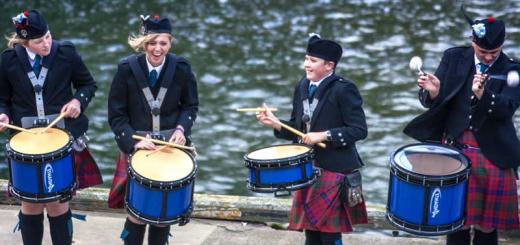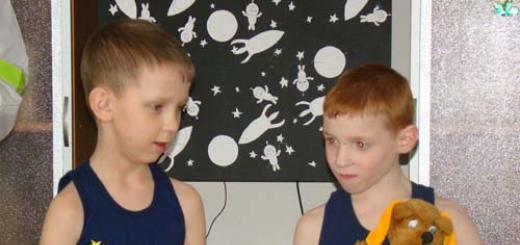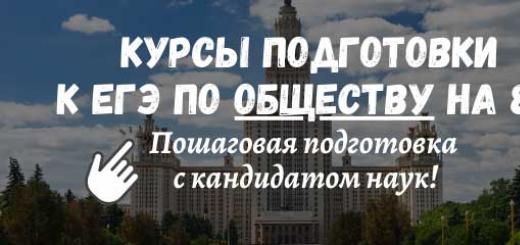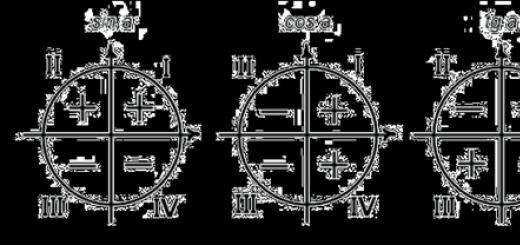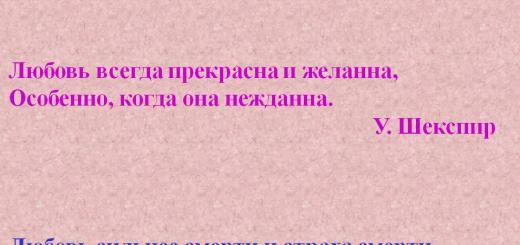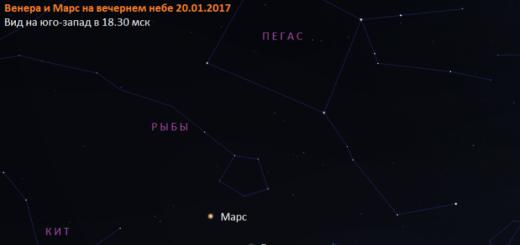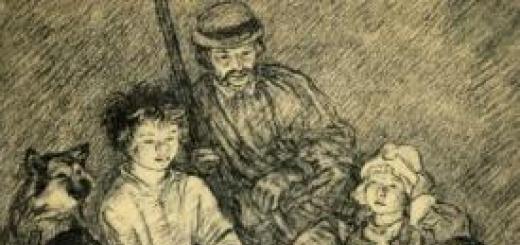The FSB generals who currently lead this service form the basis of this key structure, which is designed to ensure the national security of the state. in its current state, it was formed in 1995, since then its leaders have received the closest attention.
Director of the FSB of Russia
Only FSB generals currently hold key leadership positions in this department. There are no lower-ranking military personnel in the positions of either first deputies or deputy service directors.
The Russian FSB is currently headed by Alexander Vasilievich Bortnikov. He has held this post since May 2008, after his predecessor Nikolai Platonovich Patrushev resigned.
Bortnikov was born in 1951 in the city of Molotov, which was the name of Perm at that time. He is a graduate of the Institute of Railway Transport Engineers, from which he graduated in Leningrad. In 1975 he graduated from the KGB Higher School. It was then that he began serving in state security agencies. Oversaw counterintelligence operations units. He remained in this area of service even after the liquidation of the KGB and the formation of the FSB of Russia.
In 2003, Alexander Vasilievich Bortnikov headed the regional department for the Leningrad region and the city of St. Petersburg. Then he headed the economic security service working within the department. In 2006, he received the rank of Colonel General of the FSB. According to some reports, he received the next rank of army general a few months later - in December of the same year.
In 2008, he headed the department, simultaneously holding the post of chairman of the national. He is a member of various government and interdepartmental commissions on a wide range of issues.
Vladimir Kulishov

In order to get the most complete picture of the leadership of the FSB department, let us dwell on the personalities of the first deputy directors of this department. There are currently two of them in total. All of them are generals of the Russian FSB.
Vladimir Kulishov has the rank of army general. He has served as first deputy director since March 2013. At the same time, he heads the Border Service of the Russian Federation, which is also part of the FSB structure.
Kulishov Vladimir Grigorievich was born in the Rostov region in 1957. He studied at the Institute of Civil Aviation Engineers, which was based in Kyiv. After receiving a higher education diploma, he worked at a civil aviation plant.
He joined the structure of state security agencies in 1982. By that time, Vladimir Grigorievich Kulishov had already graduated from the KGB Higher School. After the collapse of the Soviet Union, he continued to serve in state security agencies. In 2000, he joined the central office of the Russian FSB.
Then for a year he headed the department for the Saratov region. Since 2004, he began to supervise the department for combating terrorism and headed the FSB department for the Chechen Republic. Since 2008, he served as deputy director of the federal department. In 2013, he received the post of first deputy and headed the Border Service.
He served in Chechnya, has the Order of Military Merit and the Order of Merit for the Fatherland, III degree.
Sergey Smirnov

The FSB general is another first deputy director of the department. He comes from Chita, where he was born in 1950. In his infancy, the family moved to Leningrad, where he spent his childhood and youth. At school he was a classmate of Boris Gryzlov (ex-Minister of Internal Affairs and ex-Chairman of the State Duma) and Nikolai Patrushev (ex-Director of the Russian FSB).
He received his higher education at the Bonch-Bruevich Electrical Engineering Institute, which was opened in Leningrad. During my student years I was also closely acquainted with Gryzlov; they studied together again. Started working at the Central Research Institute of Communications.
He joined the structure of the KGB of the USSR in 1974. Since 1975 he has been working in the Leningrad administration. He occupied first operational and then management positions.
In 1998, he received a position in the central office of the FSB. Headed the department of internal security. In 2000, he became deputy director of the FSB, and since 2003, first deputy. Has the rank of Army General.
First head of the department

Throughout Russian history, 7 people have led the federal department of the FSB. The very first in 1993 was Colonel General Nikolai Mikhailovich Golushko. At that time, the structure was just being formalized and was officially called the Federal Counterintelligence Service of the Russian Federation.
Golushko stayed in this post for only two months, after which he was appointed by President Boris Yeltsin as an adviser to the director of the FSB. During the years of Soviet power he headed the KGB of the Ukrainian SSR.
Stepashin - Director of the FSB

In March 1994, Lieutenant General Sergei Vadimovich Stepashin became head of the Federal Counterintelligence Service. Under him, the Federal Security Service was founded in April 1995. Formally, he became the first director of the FSB of Russia. True, he spent only two and a half months in this position.
After that, he did not get lost in high government positions. Stepashin was the Minister of Justice, headed and held the post of first deputy and until 2013 headed the Accounts Chamber. Currently he heads the supervisory board of a state corporation that promotes reform of the Russian housing and communal services sector.
FSB leadership in the 90s

In 1995, Army General Mikhail Ivanovich Barsukov came to the post of director of the FSB. He has been in the KGB system of the Soviet Union since 1964. He was the commandant of the Moscow Kremlin, and acted as a witness during the detention of the Deputy Prime Minister of one of the inspirers of the State Emergency Committee.
In the 90s, Barsukov was often criticized by his colleagues. In particular, accusing him of low professional qualities. For example, according to the former Minister of Internal Affairs of the Russian Federation, Anatoly Sergeevich Kulikov, Barsukov’s entire service was spent in the Kremlin, he was responsible for the security of the top officials of the state. Many believed that Barsukov ended up at the head of the security service only thanks to Yeltsin’s security chief, Alexander Korzhakov, who had a certain influence on the president.
In June 1996, he resigned after a scandal during Yeltsin's election campaign. His name is closely connected with the detention of activists from the presidential election headquarters, Lisovsky and Evstafiev, who tried to carry out half a million dollars in a paper box.
Director Nikolay Kovalev

In 1996, the service was headed by FSB General Nikolai Dmitrievich Kovalev. Unlike his predecessors, he spent a little more than two years in this post. Nikolai Kovalev has served in state security agencies since 1974. He was appointed to the post of FSB director after a scandal related to alleged violations of the rules of foreign exchange transactions and the conduct of Boris Yeltsin's presidential campaign in 1996.
During his time leading the service, Nikolai Kovalev managed to establish productive work of the department. Its employees began to appear less frequently in the press due to various scandals.
After being released from office, he became the people's representative from the third to the seventh convocation inclusive. He is a member of the United Russia faction and heads the expert council of the Officers of Russia organization.
Future President
Kovalev was replaced in July 1998 by the future Russian President Vladimir Vladimirovich Putin. He was the only head of the department who by that time did not have a military rank. Putin was only a reserve colonel.
The future head of state found himself in the KGB system back in 1975, immediately after graduating from Leningrad State University. He ended up in the KGB by assignment.
Having become the head of the FSB, he appointed well-known Patrushev, Ivanov and Cherkesov as his deputies. Conducted a reorganization of the entire service. In particular, he abolished the economic counterintelligence department, and also eliminated the counterintelligence department for providing strategic facilities. Instead, he created six new departments. Achieved a significant increase in employee salaries and uninterrupted financing. It is interesting that Putin himself wished to be the first civilian director of the FSB, refusing the rank of major general, which Yeltsin proposed to give him.
Putin left the post of FSB director on August 9, becoming chairman of the government. Two days earlier, Chechen fighters under the command of Khattab and Basayev entered Dagestan. The creation of the Islamic State of Dagestan was proclaimed.
Already prime minister, Putin led the operation against the militants. In mid-September they were finally driven out of Dagestan.
Nikolay Patrushev
After Vladimir Putin moved to senior positions in the federal government, the FSB was headed by Nikolai Platonovich Patrushev. He held this post for 9 years.
Just during the period of his work there was a confrontation with militants and terrorists. The Federal Security Service began to occupy a key position in matters of ensuring the country's security.
Patrushev currently holds the post of Secretary of the Federal Security Council.
FSB General Ugryumov
Over the years, a large number of officers held the post of deputy director of the FSB. Perhaps the most notable of them was Admiral German Alekseevich Ugryumov. This is the only naval officer to hold such a high position.
Ugryumov is from Astrakhan and joined the Navy in 1967. In 1975 he found himself in the Soviet KGB system. Supervised a special department of the Caspian military flotilla. In the 90s, he became one of the initiators of the case against journalist Grigory Pasko, who was prosecuted for espionage.
As deputy director of the FSB, he oversaw the work of the Special Purpose Center. The famous special groups "Vympel" and "Alpha" belonged to this unit. Notable for carrying out counter-terrorism operations in the Chechen Republic. In particular, the release of Gudermes in 1999, the capture of one of the militant leaders Salman Raduev, and the release of hostages in the village of Lazorevsky are associated with his figure.
In May 2001, he was awarded the rank of admiral. The next day he died of a heart attack.
FSB general uniform
It is quite simple to distinguish the generals to whom our article is devoted by their form.
It was last changed in 2006. Now the uniform is a khaki color, distinguished by buttonholes and chevrons, as well as the cornflower blue color of the gaps on the shoulder straps.
FATALITY
On May 31, 2001, the head of the counter-terrorist operation in Chechnya, deputy director of the Russian FSB, Vice Admiral German Ugryumov early in the morning entered his office at the military base in Khankala.
Until one o'clock in the afternoon German Alekseevich answered phone calls. I spoke with the Chairman of the Government of Chechnya, Stanislav Ilyasov, and the Deputy Plenipotentiary Representative of the Russian President in the Southern District, Nikolai Britvin.
At 13.00 a man in civilian clothes entered the vice admiral's office. German Alekseevich asked not to connect him with anyone. About half an hour later, the man left Ugryumov’s office, and 15-20 minutes later a shot rang out outside the door (see materials from the website http://www.stringer-agency.ru).
The military doctors on duty at the office literally immediately entered Ugryumov’s office and declared the admiral’s death from... a stroke. The body was sent to the military hospital in Mozdok on the same day, and from there by plane to Moscow.
German Ugryumov was buried as a Hero of Russia with all honors. They called the former head of the regional headquarters for the counter-terrorist operation in the North Caucasus a real security officer, an honest and uncompromising officer.
From the words of those accompanying Ugryumov on his final journey, it followed that German Alekseevich was thwarting the terrorists’ plans to seize cities, carry out counter-offensives and large-scale sabotage. He was given credit for the detention of Salman Raduev and the purge of mid-level Chechen field commanders.
That's it. However, in fairness, it is worth noting that German Ugryumov headed the anti-terrorism department of the FSB with the rank of deputy director since 1999 and all these years the sabotage did not stop (just remember the explosions of Moscow residential buildings - “!”).
Sabotage and kidnappings in Chechnya did not stop even after Ugryumov took control of the North Caucasus counter-terrorism headquarters. And the leaders of the Chechen militants are still alive and well.
And yet, in spite of everything, Ugryumov was indeed the uncrowned king of Chechnya for a long time. And in January 2001, when the president entrusted the leadership of the counter-terrorism operation to the FSB, removing this honorable responsibility from the Ministry of Defense, the admiral officially assumed his powers.
Coming from the “special officers” (special, or First, departments existed in the Soviet Army for secret control over the military and had wide agents among the officers, they were liquidated in the early 90s. - “!”), German Ugryumov was sent to Chechnya not as much for the fight against terrorism as for clarifying the business contacts of Russian generals with Chechen militants. This direction coincided with the resolution of the then acting President Putin on strengthening the role of the FSB in the army and restoring special departments.
War is a business. And there is nothing to be done here. The Chechen war - in particular.
Oil is constantly pumping through the pipeline. Moonshine mini-processing factories are functioning properly. The entire south of Russia sows, plows and harvests on cheap Chechen diesel fuel. Someone should control all this?
By January 2001, Ugryumov apparently solved the problem assigned to him. From the moment he headed the North Caucasus anti-terrorist headquarters, not a single penny passed by Ugryumov. He had the last word in financial, economic and political matters. All intelligence work in Chechnya was focused on Ugryumov. He had direct unofficial contacts with Basayev, Khattab and Maskhadov.
For such a person to shoot himself, something extraordinary had to happen in Chechnya.
FAST FORWARD
For the last seven years, everything in Chechnya has been business as usual, without changes. "Sweeps", "spot" bombings, ambushes, sabotage and kidnappings...
Only the names change. First there was the establishment of constitutional order, then the counter-terrorist operation. Only two cases can be considered extraordinary: the capture of Grozny by militants on August 6, 1996 (independence day of the self-proclaimed republic of Ichkeria - “!”) and the invasion of Basayev and Khattab into Dagestan on August 7, 1999.
The first case ended with Yeltsin bowing his head to the oligarchs, and Kvashnin becoming chief of the General Staff. The second is the coming to power of Putin and the next increase in the status of military generals in the hierarchy of state power.
After the pre-election aspect of the Caucasian war died down, Chechnya faded into second, third - in general, into the background.
The authorities hung a thick curtain of censorship over the war. From behind the curtain, some news was periodically heard about how another small fry of militants was “soaked in the toilet.” That’s right, “whoever offends us will not live the day.” And nothing.
However, starting from mid-May, events around Chechnya began to somehow become compressed, despite censorship. There don't seem to be any big scandals going on. Everything goes on as usual, but the “forgotten war” leaves the information margins and gradually creeps onto the front pages of newspapers and news agencies.
The impression is that while watching a military chronicle, the projection apparatus has become damaged and the frames begin to flash at increased speed.
Sudden and long-term leave of the commander of the Joint Group of Forces in Chechnya, Valery Baranov.
Five days later, presidential aide Sergei Yastrzhembsky intercepted and voiced a videotape with Basayev’s message.
Ten days later, the head of the regional operational headquarters for the counter-terrorism operation in the North Caucasus, German Ugryumov, had a “stroke”.
Three days later, a scandalous statement by the commander of the North Caucasus Military District, Gennady Troshev, about the need to carry out public executions in Chechnya. And in order to speed up the process of capturing and destroying the militants, Troshev proposed assigning a reward - $1 million each for the heads of Basayev, Khattab and Maskhadov and $250 thousand each for Gelayev and Barayev.
10 days later - the death of two front-line Su-25 attack aircraft of the Russian Air Force.
Another 10 days later - the destruction of one of the leaders of the Chechen Mujahideen, Arbi Barayev.
Two days later - the shooting of another group of some militants in some gorge...
Stop. Too much. All over again, slower and more detailed.
IN THE BEGINNING WAS THE WORD
On May 20, Aide to the President of Russia Sergei Yastrzhembsky, on the air of Vladimir Pozner’s “Times” program on the ORT channel, showed an episode of a video message from Shamil Basayev to Ruslan Gelayev.
The presidential aide emphasized that the decoding of the video recording has been completed. Experts have already confirmed the authenticity of the film and the fact that it really shows Basayev. Yastrzhembsky assured viewers that this is a very serious document, which contains “a lot of interesting things,” and promised to hand over to the press “the full version of this document.”
On May 21, news agencies actually distributed the text of the transcript, and electronic and print media quoted it in chunks the next day. But “the full version of this document” (meaning the videotape - “!”) is not in any newspaper or news agency. It’s not on ORT either.
From the short excerpt shown in Posner’s program, Basayev is clearly visible in the interiors, which are abundant in all his press interviews. For the first few seconds, Basayev spoke in Chechen with voice-over translation, then Basayev’s Chechen text disappeared, leaving only the voice of the supposed translator.
 |
The domestic counterintelligence has not demonstrated such clumsy work for a long time. It is clear that the tape was “made” in a hurry. Apparently, at Lubyanka they were in a hurry to voice the necessary information.
In this sense, it does not matter whose transcript the press diligently voiced: Basayev’s address to Gelayev or the text of the “off-screen” translator. On the contrary, the “mass of serious things” that Sergei Yastrzhembsky paid attention to becomes even more serious and interesting.
Three points from the text published by news agencies seem to be the most serious.
The first concerns the spring-summer plans of the militants to capture Grozny and the assistance necessary for this from the militants of the Pankisi Gorge.
The second relates to plans to arrange supplies of Strela anti-aircraft missile systems (in various publications, the Strela air defense system was called either “Stinger” or “Igla.” - “!”).
The third is a story about how the feds squeezed the militants, how they opened caches of weapons, but the militants still bought them back (apparently, this means that counterintelligence officers open the caches, and the troops sell the weapons. - “!”).
The best impression of the transcript distributed by Yastrzhembsky was perhaps expressed by the Internet site grany.ru (many believe that “grains” belong to Boris Berezovsky - “!”): “We, dear fellow citizens, wanted to finish all this bullshit, but reports about our victories turned out to be liars, the generals do not want to leave the developed oil wells, and the country’s leadership does not want to quarrel not only with the generals, but even with the colonels, some of whom, having found themselves on trial, they even “humanly sympathize with.” In February there was still the possibility of negotiations, and many influential field commanders then waited with interest for signals from Moscow, but now no one is waiting for anything, and all that remains is to fight, and one should not be surprised if the militants take Grozny again, and the corresponding operational data for this "We have an account."
Laughter is laughter, but if you compare the events that took place in Chechnya following the transcript, you will discover amazing coincidences.
USSR USSR, Russia Russia
German Alekseevich Ugryumov(October 10, 1948, Astrakhan - May 31, 2001, Khankala, Chechen Republic) - figure in the Russian state security agencies, admiral (2001), Hero of the Russian Federation.
Early life and service in the navy
Born into a working-class family, a participant in the Great Patriotic War. Russian. He grew up and studied at the Bishkil station in the Chebarkul district of the Chelyabinsk region. After graduating from high school, he again went to Astrakhan, where he entered a ship repair vocational school.
In the KGB of the USSR
Awards
- Hero of the Russian Federation (the title was awarded by Decree of the President of the Russian Federation of December 20, 2000 for courage and heroism shown in the performance of military duty)
- Medals, including “For courage in a fire”,
- Badge “Honorary Counterintelligence Officer” (1997),
- Badge "For service in counterintelligence" III and II degrees.
Memory
Write a review of the article "Ugryumov, German Alekseevich"
Notes
Sources
 . Website "Heroes of the Country".
. Website "Heroes of the Country".
- The novel was published in Nos. 3 and 4 of the magazine “Our Contemporary” for 2004.
An excerpt characterizing Ugryumov, German Alekseevich
“And one more thing, please, my dear, sharpen my saber; dull it... (but Petya was afraid to lie) it was never sharpened. Can this be done?- Why, it’s possible.
Likhachev stood up, rummaged through his packs, and Petya soon heard the warlike sound of steel on a block. He climbed onto the truck and sat on the edge of it. The Cossack was sharpening his saber under the truck.
- Well, are the fellows sleeping? - said Petya.
– Some are sleeping, and some are like this.
- Well, what about the boy?
- Is it spring? He collapsed there in the entryway. He sleeps with fear. I was really glad.
For a long time after this, Petya was silent, listening to the sounds. Footsteps were heard in the darkness and a black figure appeared.
-What are you sharpening? – the man asked, approaching the truck.
- But sharpen the master’s saber.
“Good job,” said the man who seemed to Petya to be a hussar. - Do you still have a cup?
- And over there by the wheel.
The hussar took the cup.
“It’ll probably be light soon,” he said, yawning, and walked off somewhere.
Petya should have known that he was in the forest, in Denisov’s party, a mile from the road, that he was sitting on a wagon captured from the French, around which the horses were tied, that the Cossack Likhachev was sitting under him and sharpening his saber, that there was a big black spot to the right is a guardhouse, and a bright red spot below to the left is a dying fire, that the man who came for a cup is a hussar who was thirsty; but he knew nothing and did not want to know it. He was in a magical kingdom in which there was nothing like reality. A large black spot, perhaps there was definitely a guardhouse, or perhaps there was a cave that led into the very depths of the earth. The red spot might have been fire, or maybe the eye of a huge monster. Maybe he is definitely sitting on a wagon now, but it may very well be that he is sitting not on a wagon, but on a terribly high tower, from which if he fell, he would fly to the ground for a whole day, a whole month - keep flying and never reach it . It may be that just a Cossack Likhachev is sitting under the truck, but it may very well be that this is the kindest, bravest, most wonderful, most excellent person in the world, whom no one knows. Maybe it was just a hussar passing for water and going into the ravine, or maybe he just disappeared from sight and completely disappeared, and he was not there.
Whatever Petya saw now, nothing would surprise him. He was in a magical kingdom where everything was possible.
He looked at the sky. And the sky was as magical as the earth. The sky was clearing, and clouds were moving quickly over the tops of the trees, as if revealing the stars. Sometimes it seemed that the sky cleared and a black, clear sky appeared. Sometimes it seemed that these black spots were clouds. Sometimes it seemed as if the sky was rising high, high above your head; sometimes the sky dropped completely, so that you could reach it with your hand.
Petya began to close his eyes and sway.
Drops fell. There was a quiet conversation. The horses neighed and fought. Someone was snoring.
“Ozhig, zhig, zhig, zhig...” the saber being sharpened whistled. And suddenly Petya heard a harmonious choir of music playing some unknown, solemnly sweet hymn. Petya was musical, just like Natasha, and more than Nikolai, but he had never studied music, did not think about music, and therefore the motives that unexpectedly came to his mind were especially new and attractive to him. The music played louder and louder. The melody grew, moving from one instrument to another. What was called a fugue was happening, although Petya did not have the slightest idea what a fugue was. Each instrument, sometimes similar to a violin, sometimes like trumpets - but better and cleaner than violins and trumpets - each instrument played its own and, not yet finishing the tune, merged with another, which started almost the same, and with the third, and with the fourth , and they all merged into one and scattered again, and again merged, now into the solemn church, now into the brightly brilliant and victorious.
“Oh, yes, it’s me in a dream,” Petya said to himself, swaying forward. - It's in my ears. Or maybe it's my music. Well, again. Go ahead my music! Well!.."
He closed his eyes. And from different sides, as if from afar, sounds began to tremble, began to harmonize, scatter, merge, and again everything united into the same sweet and solemn hymn. “Oh, what a delight this is! As much as I want and how I want,” Petya said to himself. He tried to lead this huge choir of instruments.
“Well, hush, hush, freeze now. – And the sounds obeyed him. - Well, now it’s fuller, more fun. More, even more joyful. – And from an unknown depth arose intensifying, solemn sounds. “Well, voices, pester!” - Petya ordered. And first, male voices were heard from afar, then female voices. The voices grew, grew in uniform, solemn effort. Petya was scared and joyful to listen to their extraordinary beauty.
The song merged with the solemn victory march, and drops fell, and burn, burn, burn... the saber whistled, and again the horses fought and neighed, not breaking the choir, but entering into it.
Petya didn’t know how long this lasted: he enjoyed himself, was constantly surprised by his pleasure and regretted that there was no one to tell it to. He was awakened by Likhachev's gentle voice.
- Ready, your honor, you will split the guard in two.
Petya woke up.
- It’s already dawn, really, it’s dawning! - he screamed.
The previously invisible horses became visible up to their tails, and a watery light was visible through the bare branches. Petya shook himself, jumped up, took a ruble from his pocket and gave it to Likhachev, waved, tried the saber and put it in the sheath. The Cossacks untied the horses and tightened the girths.
“Here is the commander,” said Likhachev. Denisov came out of the guardhouse and, calling out to Petya, ordered them to get ready.
Quickly in the semi-darkness they dismantled the horses, tightened the girths and sorted out the teams. Denisov stood at the guardhouse, giving the last orders. The party's infantry, slapping a hundred feet, marched forward along the road and quickly disappeared between the trees in the predawn fog. Esaul ordered something to the Cossacks. Petya held his horse on the reins, impatiently awaiting the order to mount. Washed with cold water, his face, especially his eyes, burned with fire, a chill ran down his back, and something in his whole body trembled quickly and evenly.
- Well, is everything ready for you? - Denisov said. - Give us the horses.
The horses were brought in. Denisov became angry with the Cossack because the girths were weak, and, scolding him, sat down. Petya took hold of the stirrup. The horse, out of habit, wanted to bite his leg, but Petya, not feeling his weight, quickly jumped into the saddle and, looking back at the hussars who were moving behind in the darkness, rode up to Denisov.
Killer of the Kursk..."black rear admiral Gloomy"...FSB reprisal against the fleet... October 3, 2010
Rear Admiral Ugryumov. especially vile, “Astrakhan young fellow”, “the central link of the operation - “sink the boat” - study the grief - “let the fleet go to waste” ... a particularly prominent specialist in the remote influence of psychotronic weapons, ... and the creation of artificial wounds, in the minds of the population ...died in a bucket...in his own toilet...
FSB ADMIRAL is buried behind "the Astrakhan FSB in a white bust for kisses, a knife in the back of the Russian Fleet" ... they were not going to save anyone, they were waiting for them to suffocate ... and carefully studied ... the death of submariners ... what this will have an impact on the population...they don’t need a fleet for a long time...they started a race along the verticals for the genetic code to make you get sick and die...according to “Putin’s” plan.”
........................................ ........................................ ........................................ ........................................ .................................
“FSB Admiral German Ugryumov”, and we, taking advantage of the right granted by its author, publish excerpts that give a portrait of this unique person.
Lieutenant General Alexander Alexandrovich Zdanovich:
Even from the photographs it is clear that he was overweight: apparently, something was wrong with his metabolism. But there was also an old sore: while he was still serving in the Caspian Flotilla, it happened that during some emergency work, a cable whipped his leg. After that, his leg hurt constantly. At times it was clear how difficult it was for him to climb into the helicopter, how difficult it was to throw his sore leg onto the step. However, he was so mobile - and this, given his build, and the pain that he experienced, that most did not even suspect it. While in Chechnya, he constantly flew and traveled to different areas: all of Chechnya, Dagestan, Ingushetia, Pyatigorsk, Moscow. Or he could have sat - and no one would have blamed him for it.
Arkady Arkadyevich Dranets:
Why did “sources” trust him? It’s impossible to do all the work with agents on one person, but he had a good team. The peculiarity of his style of work is that he implemented any message to the end - and the “source” saw the result, and understood that there was his merit here, that he did not take risks in vain by supplying us with information. “Sources” come in different “weight categories” - from those who can warn: a gang of so many people has entered our village, the field commander is so and so, armed with such and such - to “deeply buried” agents embedded in the environment the very top of the insurgents.
......
“Lethal outcome. On May 31, 2001, the head of the counter-terrorist operation in Chechnya, deputy director of the FSB of Russia, Vice Admiral German Ugryumov entered his office early in the morning at the military base in Khankala. Ingush and Chechen intelligence network... was controlled from the same “Astrakhan international terrorist center-FSB” by the “developer of Operation Caucasus Cascade”.
........................................ ........................................ ........................................ ........................................ ..................................
from Gryumov’s son: My father had a favorite T-shirt with the inscription “I’ll give up everything, I’ll go to Uryupinsk!” Now it is kept in the Chechen Directorate of the FSB. (Challenge T-shirt)
........................................ ........................................ ........................................ ........................................ ...................................
Dedicated to the young who choose the path.
U K A Z
President of the Russian Federation
On conferring the title of HERO of the Russian Federation to Vice Admiral G. A. Ugryumov.
For courage and heroism shown in the performance of military duty, award the title
Hero of the Russian Federation to Vice Admiral German Alekseevich Ugryumov.
President of the Russian Federation V. Putin.
Moscow, Kremlin.
UGRUMOV GERMAN ALEXEEVICH
Est socia mortis homini vita ingloria.
A person's inglorious life is equal to death.
Publius Sir. Maxims
Living the lives of my heroes, I thought for them.
Margarita Volina. Black romance
........................................ ........................................ ........................................ ........................................ .....................................
........................................ ........................................ ........................................ ........................................ ......................................
Only this year, contracts related to India’s purchase of the Russian aircraft carrier Admiral Gorshkov, converted to Indian standards, India’s purchase of 310 T-90S tanks, the establishment of their production in India, the creation of a sea-based anti-ship missile system, and the purchase of a new batch have been implemented or are being implemented. Russian diesel submarines "Amur", mobile missile launchers "Smerch" and "Grad" and Mi-17 helicopters, the purchase of operational-strategic bombers Tu-22M3, the creation of a national long-range radar control and warning system for the country's air defense, the purchase of fifty multi-role Su fighters -30MKI, production of 140 Su-30MKI at the HAL plants in Sunabed (Orissa), construction of three frigates for the Indian Navy. And this is not a complete list. According to experts, the value of military-technical contracts between Moscow and Delhi until 2010 is at least 10 billion US dollars.
But all this is not satisfying, since the prospects can indeed be fantastic.
Prospects
Russia and India outlined the contours of joining forces in creating the North-South transport corridor and came close to implementing this major investment project. In May, the intergovernmental agreement on the international transport corridor (ITC) “North-South” officially came into force. This was officially announced on behalf of the governments by the transport ministers of India, Iran and Russia.
According to B.N. Kuzuk, General Director of the industrial holding company NPK, compared with the existing route through the Suez Canal, transporting goods along the North-South corridor will reduce costs by 15-20 percent, and delivery times will also be reduced by 15-20 days. Annual revenues from the implementation of the North-South corridor are estimated by experts at approximately 5-6 billion US dollars. “By the way, according to Kuzuk, today Azerbaijan, Armenia, Belarus, Bulgaria, Kazakhstan and Bahrain have announced their intention to join this agreement. Turkmenistan, Saudi Arabia, Kuwait, the United Arab Emirates, Indonesia, Malaysia, Sri Lanka, as well as the Baltic countries are considering the opportunity to become participants in this project.
........................................ ........................................ ........................................ ........................................ .....................................
THEY HAVE A LONG TIME "PUT ON THE FLEET - IT'S NOT IN THEIR PLANS - Pakhanov_KODLY BUND"
........................................ ........................................ ........................................ ........................................ .....................................
"THE ENGINE OF DEATH"
G. A. Ugryumov was born in 1948 in Astrakhan. Since 1967, he has been a cadet at the Caspian Higher Naval School named after S. M. Kirov. Upon completion of training, he was sent to serve in the Caspian Flotilla.
Since 1975, G. A. Ugryumov served in the security agencies of the army, where his organizational abilities and leadership talent were fully demonstrated. In 1999, he was appointed to the position of first deputy head of the Department for the Protection of the Constitutional Order and Combating Terrorism, and since November 1999 - deputy director - head of the department.
G. A. Ugryumov made a great contribution to ensuring the security of the state and preserving its sovereignty. In January 2001, by Decree of the President of the Russian Federation, he was appointed head of the Regional Operational Headquarters in the North Caucasus. With his direct participation, special events were developed and carried out
A strange grimace of fate: a sailor who died on a parachute; “Hero of Russia?”, who never wore an asterisk; an admiral who never wore admiral's shoulder straps... Maybe this is the pointing finger of fate that everything that Ugryumov was programmed to do
........................................ ........................................ ........................................ ........................................ ........................................ .
We are talking about the military wing of the PFA (Independent Front of Azerbaijan) and the combat groups that Nagorno-Karabakh put up. The goal was set as follows: to reveal their goals and plans, to intercept their connections with Western intelligence services and with the intelligence services of the countries of the region - Turkey and, above all, Iran. In the process of certain analysis, a decision was made: to introduce our source and begin a long-term counter-terrorism operation.
I worked on his legend and was responsible for his introduction into the deep underground. The initial stage is implementation, the second is active use to obtain information that would be of interest to the country's leadership and to units operating in the region. First of all, the information must be proactive. Of course, the operation is super secret. Only two people knew about it - German Alekseevich and 1. Our very good specialists were involved - those units that ensure our work. Three external surveillance groups arrived from Moscow, which no one knew about and should not even have guessed. Two teams of technical specialists arrived and provided us with operational equipment. All these forces ensured the operation of only one source: its operation, its safety, its verification.
........................................ ........................................ ........................................ ........................................ ..................................
Ugryumov German Alekseevich
Est socia mortis homini vita ingloria.
A person's inglorious life is equal to death.
Publius Sir. Maxims
Living the lives of my heroes, I thought for them.
Margarita Volina. Black romance
On June 1, 2001, a mournful obituary about the death of Hero of Russia German Alekseevich Ugryumov appeared in Moscow newspapers. To the majority of his fellow citizens of Russia, whom he served honestly, his name meant nothing. True, someone might remember that the name “Ugryumov” was mentioned in connection with the capture of Salman Raduev, and even earlier - in connection with Pasko’s “case”. For the admiral’s colleagues from the Federal Security Service, the name of German Ugryumov was and will remain sacred.
“On May 31, 2001, while performing military duty on the territory of the Chechen Republic, the deputy director - head of the Department for the Protection of the Constitutional System and the Fight against Terrorism of the Federal Security Service of the Russian Federation, Vice Admiral, died suddenly UGRUMOV German Alekseevich.
G. A. Ugryumov was born in 1948 in Astrakhan. Since 1967, he has been a cadet at the Caspian Higher Naval School named after S. M. Kirov. Upon completion of training, he was sent to serve in the Caspian Flotilla.
Since 1975, G. A. Ugryumov served in the security agencies of the army, where his organizational abilities and leadership talent were fully demonstrated. In 1999, he was appointed to the position of first deputy head of the Department for the Protection of the Constitutional Order and Combating Terrorism, and since November 1999 - deputy director - head of the department.
G. A. Ugryumov made a great contribution to ensuring the security of the state and preserving its sovereignty. In January 2001, by Decree of the President of the Russian Federation, he was appointed head of the Regional Operational Headquarters in the North Caucasus. With his direct participation, special measures were developed and carried out as part of the counter-terrorism operation in the North Caucasus region, as a result of which leaders and active members of gangs were neutralized and hundreds of human lives were saved.
When performing official tasks, G. A. Ugryumov showed personal courage and heroism. He was distinguished by dedication to his work, deep specialized knowledge, exceptional demands on his subordinates, and the ability to work with people. These qualities, combined with extensive life and professional experience, allowed him to successfully manage complex and multilateral activities to protect the constitutional order and combat terrorism.
The merits of G. A. Ugryumov in ensuring state security were highly appreciated by the Motherland. He was awarded the title of Hero of the Russian Federation. He was awarded the Order of Military Merit, the Badge of Honor, and many medals.
The bright memory of German Alekseevich Ugryumov will forever remain in our hearts.
Board of the Federal Security Service of the Russian Federation."
Just the day before, in the Kremlin, Russian President Vladimir Putin signed a Decree conferring the rank of admiral on G. A. Ugryumov, so his colleagues, shocked by the sudden death of Ugryumov, did not have time to get their bearings. And in the mourning photograph of Ugryumov in vice-admiral's uniform, he did not have to wear three-star ones. The admiral’s wide chest is decorated with the Golden Star of the Hero of Russia, but he never put on the star and did not even have time to hold it in his hands: the star in the photo was scanned...
A strange grimace of fate: a sailor who died on the shore; Hero of Russia, who never wore an asterisk; an admiral who never wore admiral's shoulder straps... Maybe this is the pointing finger of fate that everything that Ugryumov was programmed to do, that he could still do, he did not have time to do...
Low bow to his friends and associates, without whom this book could not have happened.
From the book 100 great psychologists author Yarovitsky Vladislav AlekseevichEBBINGHAUS HERMANN. Hermann Ebbinghaus was born on January 24, 1850 in Germany. Herman's parents wanted their son to get a profession that would bring a good income, but the boy was very interested in science. Despite his family's objections, he entered university, where he met
From the book How Idols Left. The last days and hours of people's favorites author Razzakov FedorGERMAN YURI GERMAN YURI (writer, screenwriter: “Seven Braves” (1936), “The Rumyantsev Case” (1956), “My Dear Man” (1958), “Believe me, people” (1965), etc.; died on January 16 1967, at the age of 57). At the end of the 40s, Herman wrote the novel “Lieutenant Colonel of the Medical Service,” where exactly
From the book Great Tyumen Encyclopedia (About Tyumen and its Tyumen people) author Nemirov Miroslav MaratovichTITOV GERMAN TITOV GERMAN (cosmonaut No. 2; on August 6–7, 1961, he was the first in the world to spend a whole day in orbit in a cramped spaceship, proving that a person can live and work in space; died on September 20, 2000, at the age of 66 life).Titov died suddenly. On September 9 he is in
From the book Dossier on the Stars: truth, speculation, sensations. They are loved and talked about author Razzakov FedorGerman Surname unknown. But, if we talk about the city of Tyumen, and if we talk about its spiritual life, then, undoubtedly, its most noisy phenomenon of the second half of the 1980s was the activity of people grouped around all kinds of rock music, and mainly - around the group
From the book Passion author Razzakov Fedor From the book The Tragedy of the Cossacks. War and fate-1 author Timofeev Nikolay SemenovichALEXEY GERMAN Since Alexey German was the son of the famous writer Yuri German, he never had problems with money. And when he studied at the institute, at LGITMiK, he could invite the girl he liked to any St. Petersburg restaurant, knowing for sure that any bill
From the book FSB Admiral (Hero of Russia German Ugryumov) author Morozov Vyacheslav Valentinovich2. Sergey Boyko GERMAN ALEXEEVICH BELIKOV Every city has its own chronicler. No one appoints him, he does his work at the call of his heart, at the behest of his soul. It is not easy to be a chronicler. You need to know a lot about the city - the history of every street, alley, square. Know the history
From the book The Shining of Everlasting Stars author Razzakov FedorPrologue Ugryumov German Alekseevich Est socia mortis homini vita ingloria. A person's inglorious life is equal to death. Publius Sir. Maxims Living the lives of my heroes, I thought for them. Margarita Volina. Black novel On June 1, 2001, a mournful obituary about the death of the Hero appeared in Moscow newspapers
From the book Memory That Warms Hearts author Razzakov FedorGERMAN Anna GERMAN Anna (singer; died on August 26, 1982 at the age of 47). The first time Herman almost died was in 1967. She was then touring in Italy and got into a terrible car accident. She had complex fractures of the spine, both legs, left arm,
From the book City Staritsa and the locally revered ascetic Pelagia author Shitkov Alexander VladimirovichGERMAN Yuri GERMAN Yuri (writer, screenwriter: “Seven Braves” (1936), “The Rumyantsev Case” (1956), “My Dear Man” (1958), “Believe me, people” (1965), etc.; died on January 16 1967 at the age of 57). In the late 40s, Herman wrote the novel “Lieutenant Colonel of the Medical Service,” where exactly
From the book They Were First author German Yuri PavlovichTITOV German TITOV German (cosmonaut No. 2; on August 6–7, 1961, he was the first in the world to spend a whole day in orbit in a cramped spaceship, proving that a person can live and work in space; died on September 20, 2000, at the age of 66 life). Titov died suddenly. On September 9 he is in
From the book 100 Famous Americans author Tabolkin Dmitry Vladimirovich From the book Three Women, Three Fates author Tchaikovskaya Irina IsaakovnaY. German ICE AND FLAME I have never seen Felix Edmundovich Dzerzhinsky, but many years ago, on the recommendation of Maxim Gorky, I talked with people who worked with Dzerzhinsky at different stages of his amazing work. These were security officers, engineers, and
From the book All the Prime Minister's Men author Rudenko Sergey IgnatievichMELVILLE HERMAN (b. 1819 - d. 1891) Writer. Novels “Omu”, “Mardi”, “Redburn”, “The White Peacoat”, “Moby Dick, or the White Whale”, “Pierre, or Ambiguity”, “Israel Potter”, “The Tempter”; the stories “Typee”, “Billy Bud, the Former Sailor”; collection of short stories "Tales from
From the author's book3.2. Hermann and Dorothea The poem “Herman and Dorothea” was created by the forty-eight-year-old Goethe in 1797. It is often characterized as an idyll. Written in ancient hexameter, in nine chapters, symbolically entitled with the names of the nine Muses, followed by quite ordinary titles
From the author's bookGerman Anna Anna German belongs to that category of people who “see the goal, but do not see the obstacles.” As Galicians say, she is a woman of “honor” and loves to talk about the equality of women and men. Even during her journalistic career, Anna Nikolaevna
